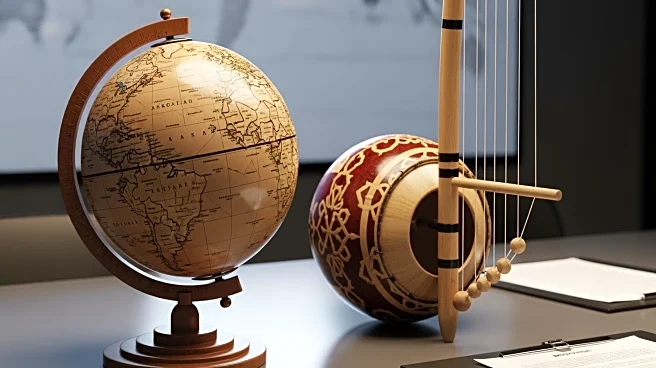What's Happening?
Brazilian President Luiz Inácio Lula da Silva expressed optimism about reaching a trade agreement with the United States following discussions with President Trump in Kuala Lumpur, Malaysia. The meeting took place on the sidelines of a regional summit,
where both leaders indicated a willingness to negotiate a deal. President Trump suggested the possibility of reducing tariffs on Brazilian goods, which were initially imposed due to Brazil's political situation involving former President Jair Bolsonaro. Lula presented Trump with a document arguing against the U.S. tariff hikes, which he claimed were based on incorrect information. Despite not committing to suspending the tariffs, Trump assured Lula that an agreement could be reached soon.
Why It's Important?
The potential trade deal between the U.S. and Brazil could significantly impact both countries' economies. For the U.S., reducing tariffs on Brazilian products may enhance trade relations and increase market access for American goods. Brazil, on the other hand, could benefit from reduced tariffs, boosting its export economy and alleviating economic pressures caused by the tariffs. The discussions also highlight the geopolitical dynamics, as Brazil seeks to mediate regional conflicts, such as the crisis in Venezuela. The outcome of these negotiations could influence future trade policies and diplomatic relations between the two nations.
What's Next?
If a trade agreement is reached, it could lead to a reduction in tariffs and improved economic ties between the U.S. and Brazil. Both countries may continue negotiations to finalize the terms of the deal, potentially involving further diplomatic discussions. Stakeholders, including businesses and trade organizations, will likely monitor the situation closely, as the agreement could open new opportunities for trade and investment. Additionally, the resolution of tariff disputes may set a precedent for handling similar issues with other countries.
Beyond the Headlines
The discussions between President Trump and Lula also reflect broader political and economic strategies. Lula's willingness to mediate in Venezuela suggests Brazil's interest in playing a more active role in regional politics. The negotiations may also influence Brazil's domestic policies, particularly in relation to its handling of former President Bolsonaro's legal issues. The trade talks could have long-term implications for Brazil's international standing and its relationship with other global powers.
















